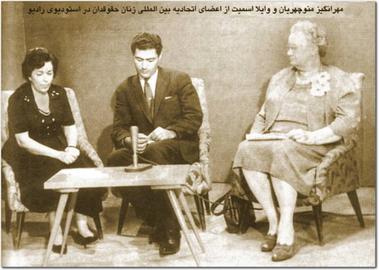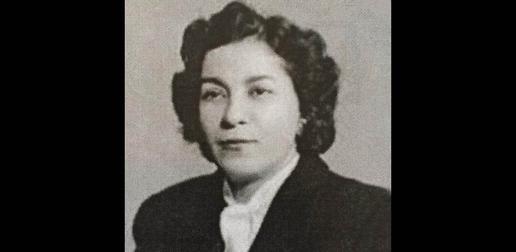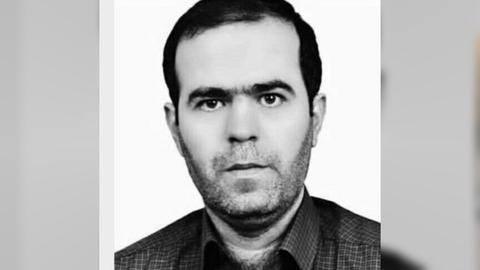Global and Iranian history are both closely intertwined with the lives and destinies of prominent figures. Every one of them has laid a brick on history’s wall, sometimes paying the price with their lives, men and women alike. Women have been especially influential in the last 200 years, writing much of contemporary Iranian history.
In Iran, women have increased public awareness about gender discrimination, raised the profile of and improved women’s rights, fought for literacy among women, and promoted the social status of women by counteracting religious pressures, participating in scientific projects, being involved in politics, influencing music, cinema... And so the list goes on.
This series aims to celebrate these renowned and respected Iranian women. They are women who represent the millions of women that influence their families and societies on a daily basis. Not all of the people profiled in the series are endorsed by IranWire, but their influence and impact cannot be overlooked. These articles are biographical stories that consider the lives of influential women in Iran.
IranWire readers are invited to send in suggestions for how we might expand the series. Contact IranWire via email ([email protected]), on Facebook, or by tweeting us.
In many parts of the world, struggles for women's basic and egalitarian rights have moved on, at least to an extent. For many, the 21st century has meant a global awareness of women’s theoretical rights, if not a full practical endorsement of them. Although there is much to do to bring about full equality almost everywhere, Iranian women are still struggling to assert their basic rights — rights to inheritance, international travel, equal custody of their children, equal shares in matrimonial properties and equal values when it comes to the concept of blood money in Sharia law. These matters have been and remain the focus of many Iranian citizens, among them women’s rights activists and lawyers.
But the struggle for gender rights has deep roots in Iran.
One woman who struggled hard for equal rights in Iran is Mehrangiz Manuchehrian, the first woman to obtain a doctorate degree in law and one of the country’s first female senators.
Born in 1906 in the city of Mashhad, Manuchehria moved to Tehran with her parents, Manuchehr Manuchehrian and Doratoltaj, when she was eight. There, she continued her education at Iran’s two French schools in Tehran: Jeanne d'Arc and Franco-Persane.
Mehrangiz Manuchehrian and 14 other Iranian women entered the Faculty of Law at Tehran University in 1946, the first women in the country to do so. She was very active at the university, and from the very first days criticized laws affecting women and their rights. She gave speeches in student circles calling for the necessary revision of these laws.
Manuchehrian was one of the first women to protest against the law that the crown prince must be a man, stressing that women could also take on the role. This demand was a keystone in reform implemented by Iran’s pre-revolution Senate (1949 to 1979) years later, when it accepted the regency of Queen Farah Pahlavi, meaning she shared the shah’s monarchical status if not his authority and political power.
During her years at university, one of Manuchehrian's key focuses was on inequality in inheritance rights. "Although Mohammad was the last prophet, we should know that social reforms, which have a continuous and evolutionary nature, cannot end with him. In today's world and in the current conditions, girls and boys need the same material means for living and education. That is why they should have equal rights to inheritance."
She also tackled the issue of dowry, describing it simply as a sum of money used to buy and sell girls and women in Iran. She advocated for the practice to be scrapped and insisted that women should be entitled to a share of their family's properties and receive equal pension rights.
Mehrangiz Manuchehrian was the only woman to sit the entrance exam for a doctorate degree in law in 1955, and achieved the top grade among the candidates. She completed her Ph.D in Criminal Law from Tehran University in 1962 with top grades.
In addition to her endeavors to improve the situation for women's rights, she was also an active campaigner for children's rights — her doctorate thesis was entitled Children’s Crimes: a Plan to Establish Special Courts for Children.
Founder of Lawyers Union and a Pioneering Female Senator
Manuchehrian joined the Iranian Bar Association in 1949, even before finishing her PhD. She was the first woman to do so. She was a member of the International Bar Association, and held the honorary chair of the International Union of Women Lawyers for life. Her passionate activity and pursuance of legal rights for women and children won her several international awards, including the United Nations Human Rights Peace Award in 1968 together with Eleanor Roosevelt. The International Peace Center also presented her with the Peace Award in 1981.
Establishing the Iranian Women Lawyers Union, Iran’s branch of the International Women Lawyers Union, was one of Manuchehrian's most important services to the country’s legal community, and she led the union for years. The union was exclusively for girls and women studying law or who had graduated from law school. As stated in its charter, the goals of the organization included achieving equality of gender rights based on the International Human Rights Proclamation, the country's constitution and the laws of the legislative branch.
Mehrangiz Kar, one of the first Iranian lawyers to join the union, told IranWire: "We were the younger generation of lawyers. I did not have the honor to be her student, but we consider ourselves as her students out of respect for her efforts and services."
In an interview with Deutsche Welle about the influence Manuchehrian had on securing the rights of women and children in Iran, Turan Shahriari, who studied as an intern with Mehrangiz Kar, said: "Mehrangiz Manuchehrian opened the door of the Faculty of Law to women. As a result of her perseverance, together with her contemporaries, a course in criminal law dealing particularly with delinquent children was initiated at the National University [now Shahid Beheshti University]. Manuchehrian wrote a book criticizing the laws that affected women's rights — the first book written by an Iranian woman lawyer.”
Mehrangiz Manuchehrian was one of the first women to become a member of the Senate, which she served from 1963 to 1972. Based on the constitution, out of 60 members of the Senate, 30 were appointed by the Shah. In the Senate’s fourth term, there were two women among those 30 chosen senators — Shamsolmoluk Mosahab and Mehrangiz Manucherian.
During her time in the Senate, Manucherian focused heavily on the legal problems of women. She tabled the progressive Family Protection Law, which was eventually approved by the National Consultative Assembly as the result of her lobbying. The bill demanded the elimination or amendment of articles in Sharia law — and supported by Iran's own constitution — relating to inheritance, citizenship, residence, marriage, and divorce, among other matters, so that they adequately safeguarded women's rights. The reforms were inspired by and based on a report presented by the UN Secretary General on gender rights. The preliminary draft of the bill was presented in 1963 and finally approved in 1967. The law was once again revised in 1974, and went further to support women’s rights.
Kar describes why Manuchehrian was influential: "She was the only senator who protested against the Family Law when it was presented to the Senate, because the clause legalizing polygamy had not been removed from the law. She resigned from the Senate because the senators did not support her for various reasons, including masculism or fear of senior religious leaders. I think her active position in this regard will remain in [our] memories forever."
A Resigning Matter
Some senior Shia clerics, or marja, opposed the Family Protection Law, including the founder of the Islamic Republic, Ruhollah Khomeini, who described it as an attempt "to destroy Muslim family life," and branded its legislators and executives sinful in the face of Sharia law.
In 1972, as an act of protest against the Passport Law tabled in parliament, Manuchehrian resigned from the Senate. Under this law, which remains in place today, women are required to obtain their husbands' permission to travel abroad. Speaking of her decision to resign in protest against the law, Manuchehrian said: "What is the use of remaining in the Senate and occupying a seat, being one of the only two women in Senate, but not being able to practically do anything to improve the situation for women?"
After the 1979 revolution, and at the peak of the executions that came in the early years of the new ruling system, Manuchehrian stood up against further measures to suppress the population and the numerous executions. She was one of a group of lawyers to protest against the removal of female judges in the years after the revolution. When it became mandatory for women to wear the Islamic headscarf, or hijab, she strongly opposed it within the framework of the Iranian Women Lawyers Union.
Then came Khomeini’s direct order to repeal the Family Protection Law, which Manuchehrian publicly opposed. Not only was her earlier work greatly devalued by this process, but she became a target for punishment — she was repeatedly summoned to the courts because of her protests. Finally, in one of these summons in 1982, she was told that her practice license had been revoked for good.
Mehrangiz Manuchehrian died in Tehran on July 5, 2000 — there was no news coverage of her death.
But although it appears as though Mehrangiz Manuchehrian’s extensive achievements were effectively destroyed after the revolution, her work, effort and dedication live on in Iranian history.
This verse by Omar Khayyam can be seen on her gravestone:
The state of the world and ephemeral life of being;
Is a dream, an illusion, a deception and a breath.
Read other articles in this series:
Dr. Mina Izadyar, a Zoroastrian Doctor at the Service of All Iranians
Mahshid Amirshahi, Writer, Journalist and Satirist
Parvin Motamed Amini, A Life Devoted to Education
Nahid Pirnazar, Professor of Iranian and Jewish History
visit the accountability section
In this section of Iran Wire, you can contact the officials and launch your campaign for various problems



























comments